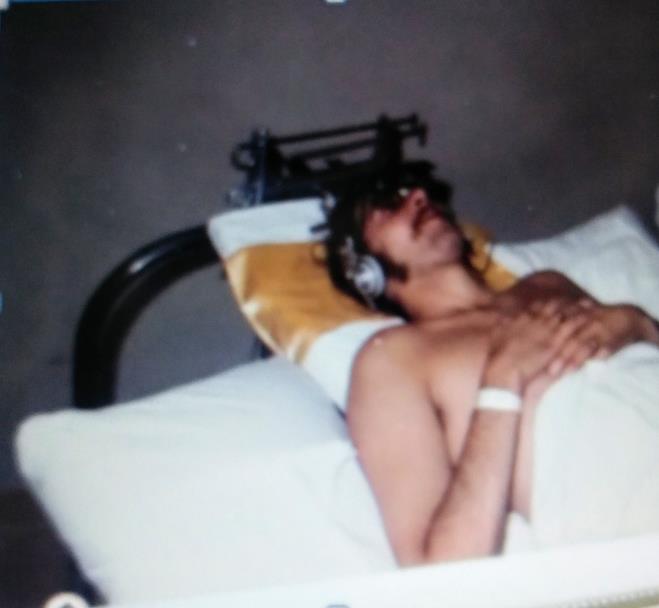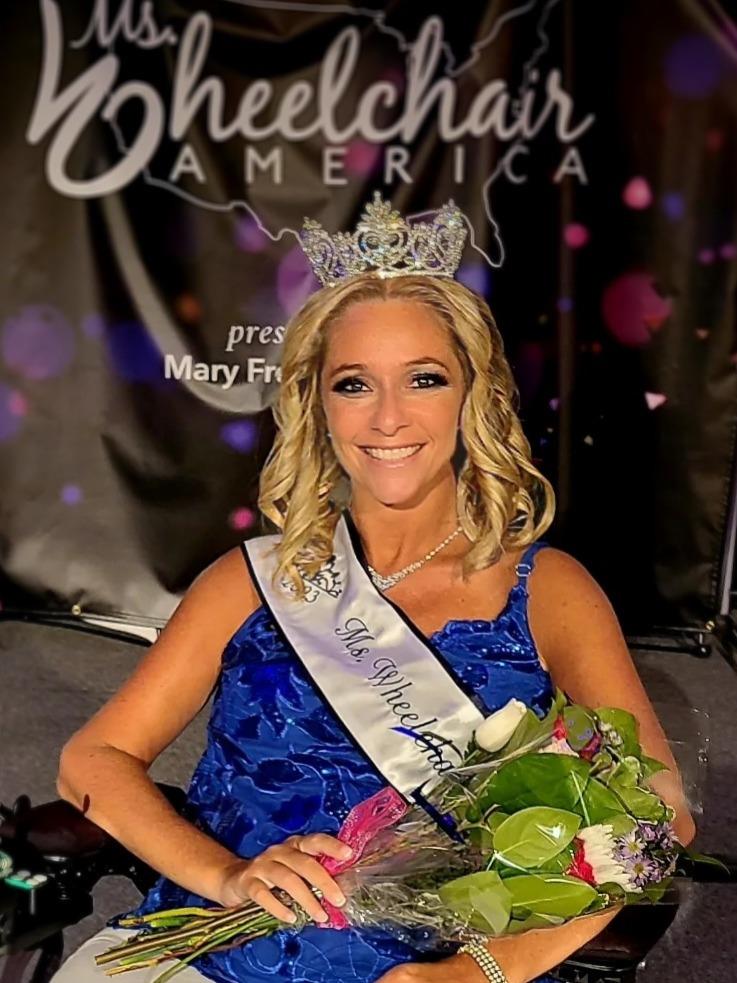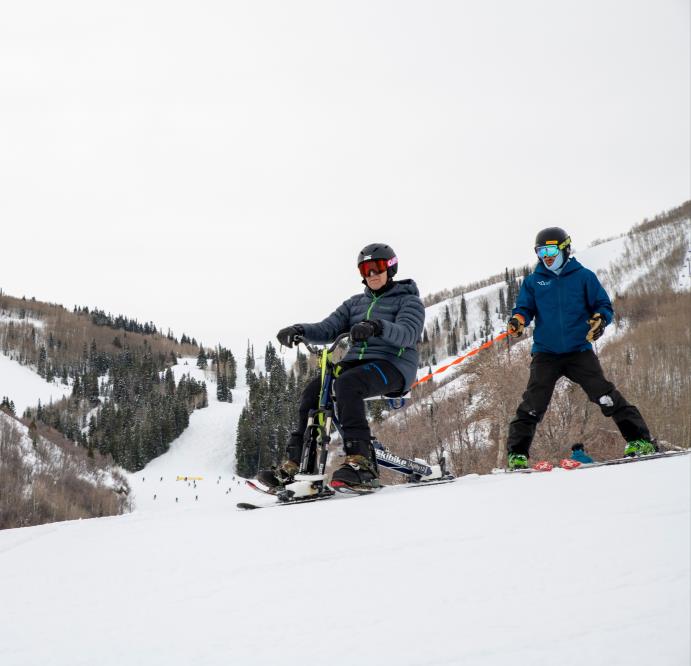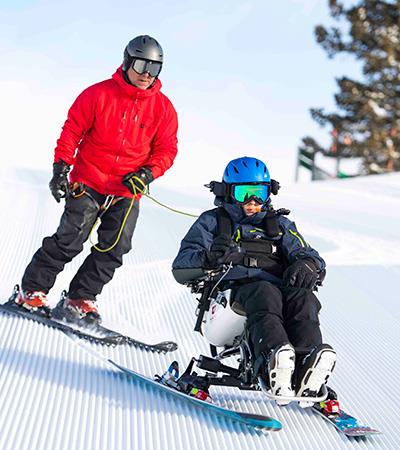Making Your Way When the Road of Life Gets Tough

My journey on the road of life has been quite the adventure. I'm a 73-year-old outdoor junkie, who, at the ripe age of 22 had his life take a detour. I sustained a C-6 spinal cord injury from a diving accident, paralyzing my body from the neck down.

I started my second decade of life paralyzed.
But, by some miracle and with a lot of stubborn determination, I managed to regain partial use of my arms and legs. It's been a rollercoaster ride ever since, navigating this able-bodied world in a somewhat different way.
Living with a disability, particularly in a world that often doesn't quite know what to do with us, has been a constant learning experience. I've faced challenges, obstacles, and misconceptions, but I've also discovered resilience and a unique perspective on life’s road that most people don’t have the chance to embrace.
As the years have gone by, I've witnessed some positive changes in how society perceives and accommodates those with disabilities. But there's still a long way to go. I've learned to see the beauty in our differences and believe that understanding, acceptance, and inclusivity are the keys to making this world a better place for everyone, regardless of their abilities.
One of the biggest silver linings to living with a disability is the extraordinary people you meet, whether disabled or able bodied. I’ve had the pleasure of befriending both.
Ali Ingersoll is a friend who has a C-6 spinal cord injury from a diving accident as I do, though hers is significantly more challenging, affecting her arms and hands as well as her legs. It did not touch her spirit. She might be one of the strongest and most accomplished people I know, regardless of her physical abilities.
Ali is a remarkable disability advocate, spinal cord injury survivor, and the embodiment of resilience. As Miss Wheelchair America, she has become an inspiring figure in the world of disability advocacy.
What sets Ali apart is her exceptional sense of admittedly dark humor. She understands that humor can be a powerful tool for coping with adversity, and she uses it to navigate the challenges of her life.
Her wit is infectious, breaking down barriers and misconceptions about people with disabilities. Ali's ability to laugh in the face of extreme adversity is a testament to her strength and courage.
Ali is the creative mind behind The Quirky Quad, a blog where she shares her personal
experiences, insights, and valuable information about life with a spinal cord injury.
Through her writing, she offers a
glimpse into the daily triumphs and tribulations of living with a disability.
The blog serves as a platform for raising awareness about the challenges faced by individuals with spinal cord injuries and other disabilities while also providing a source of inspiration and support.
An important caveat: Ali’s writing pulls no punches. It’s powerful, visceral and at
times head-snapping
with its use of colorful language, always with a laugh, whether a wry smile or belly
laugh.

Ali Ingersoll is Miss Wheelchair America 2023.
She’s quick to point out that it’s an advocacy competition, not a beauty contest.
She could win both.
As Miss Wheelchair America, Ali is an advocate not just for herself but for the entire disabled community. Her journey is a living testament to the power of the human spirit, and she continues to inspire others with her unwavering determination and her ability to find humor in even the most challenging situations.
Ali’s story is a shining example of how resilience, humor, and advocacy can create a more inclusive and understanding society.
During her reign as Ms. Wheelchair America, she hopes to continue her health insurance advocacy platform on a larger scale and help people learn to self-advocate. “At my core, I’m a person with a disability who believes in paying it forward, human kindness and advancing inclusiveness for all,” she says.
One of her specific goals is to get insurance companies to recognize the difference in need for people with disabilities. She had to fight long and hard to get her elevated wheelchair approved. The chair’s ability to raise her to countertop height or bed height is life changing but is not considered medically necessary by most insurance providers.
In addition to her role as Miss Wheelchair America and her influential blog, Ali has also made significant contributions in the corporate world.
She serves as the Director of Global Affairs for Open Inclusion, a prominent UK-based research company. In this role, Ali has become a driving force behind the company's mission to promote inclusivity and diversity in the marketplace with products and services that are more accessible and useful to people of all abilities.
Her unique perspective as a spinal cord injury survivor and disability advocate has allowed her to spearhead groundbreaking initiatives that bridge the gap between accessibility and corporate culture.
Ali's work at Open Inclusion has not only created more inclusive business environments but has also opened doors for individuals with disabilities, showcasing the value they bring to the professional world.

I advocate for more adaptive recreation for people with disabilities.
That’s me on the ski bike with instructor Jared Dangerfield tethering me.
My passion for advocacy takes me to the outdoors for recreation that’s accessible to everyone, regardless of physical ability. My efforts span all four seasons and all terrain, from deep canyons and rivers to snow-capped mountain peaks. My choices include adaptive skiing, cycling, river running, and kayaking.
I advocate by serving on the marketing committees of adaptive recreation organizations like the National Ability Center (NAC) in Park City and Wasatch Adaptive Sports (WAS) at Snowbird, spreading the word about their year-round outdoor programs, and supporting fund raising efforts.
I also participate and write about my adventures with TRAILS (Technology, Recreation, Accessibility, Independence, Sports) the University of Utah’s outdoor recreation program for people with complex neurological issues like spinal cord injuries and traumatic brain injuries. Dr. Jeffrey Rosenbluth, a University of Utah physician specializing in spinal cord injury medicine, is the founder and driving force of the TRAILS program.
“We used to think about recreation as fun, and now we also think about recreation as an extension of rehabilitation,” he says.
The TRAILS mission is to provide a continuing recreational resource for spinal cord injury patients, who are typically rehabilitated in six weeks or less and sent home.
“In that short amount of time, patients are not ready to hear about things like recreation. They’re still dealing with the tragedy,” he says.

Dr. Jeffrey Rosenbluth with the new TetraSki, suitable for everyone regardless of physical ability.
A complete quadriplegic can ski with sip and puff technology.
Studies have shown that many patients end up back in the hospital a few months after discharge with complications, such as severe depression or life-threatening pressure sores, resulting from a sedentary lifestyle. Getting patients active can mitigate many of those problems. It also helps patients deal with the intense isolation that comes with many disabilities.
“Patients are hesitant, even years after, to try something they didn’t think they could do. We’re trying to get people together to take advantage of the knowledge of people who have been out there a little longer, who have experienced [these challenges],” Rosenbluth says. “And we want to bring the family back to the activities.”
The majority of spinal cord injury patients are young men who have been active in outdoor sports. That would include me. I was a 22-year-old ski instructor, cyclist and tennis player when I broke my neck.
“We’re fortunate in Utah to have close proximity to a lot of outdoor recreation, so with TRAILS, we’re able to exploit these resources to get people back outdoors.”
The equipment can be expensive. Monoskis and hand cycles can run $5,000 or more. “The goal is to get equipment designed that can be modified for anyone who wants to use it,” Rosenbluth says.
Rosenbluth hopes to provide rental equipment wherever it is needed, whether at ski resorts or community recreational outlets. The same goes for transportation. Getting to the mountains or lakes, even with Utah’s accessibility, can be challenging for many. TRAILS is working with community partners like the Utah Transit Authority to help solve that problem.
It’s unlikely that I would have become associated with people like Ali Ingersoll, Dr. Rosenbluth or the many other outstanding individuals associated with organizations like Open Inclusion, TRAILS, NAC, WAS and others. It’s a silver lining that permeates my life every day as I navigate the twisting, bumpy road of living with a disability.
